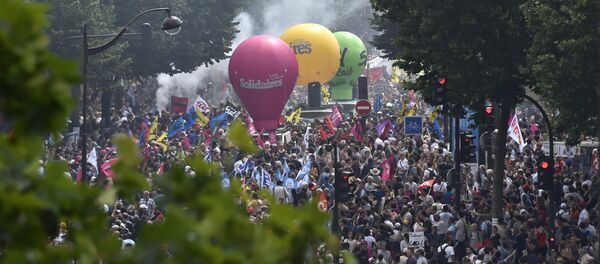France has been paralyzed by a series of nationwide strikes — involving all the major unions as well as students — against French President Francois Hollande's proposed reforms to the highly codified French labor laws — known as the Code du Travail — in order to give employers more flexibility.
Huge #strikes #shut #France #down—and could bring #government to its #knees https://t.co/8oIJs6zyw6
— Christy Lee (@Danedame1) 5 July 2016
The labor reforms were largely directed at making companies take on more workers on permanent contracts, rather than temporary ones, to bring down the unemployment rate from ten percent. The proposals would give employers more scope to lay-off workers and cut costs and allow some employees to work far longer than the current 35-hour week.
Risk Averse
Other reforms include a cap on severance pay for workers dismissed by a company. The current uncertain cost of laying-off workers mean that companies are risk-averse to doing so, leaving them less flexible and — in some cases — less productive. Opponents say the reforms would undermine workers' rights on pay, overtime and breaks.

The reforms have been the cause of a series of major protests throughout France, with students playing a major role and strikes by all the main unions. Hollande's record on the economy is poor, although he argues that it is only by freeing up the Code du Travail that employers will have the flexibility to kick-start it.
French unemployment has remained stubbornly at 10.2 percent and Hollande believes it is only by freeing-up the labor laws that employers can take on more permanent staff, rather than recruiting on short-term contracts, or not recruiting at all.




